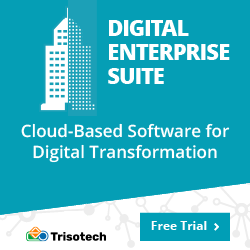NASSCOM’s Representation on challenges faced by IT industry due to prescribed electronic modes under section 269SU of the Income-tax Act, 1961
Blog: NASSCOM Official Blog
Context
With an objective to promote digital payments, the Government has recently mandated zero charges on payment transactions done on National Payments Corporation of India (NPCI)’s Unified Payments Interface (UPI) and RuPay debit cards.
Concisely, there are three developments:
- Businesses with turnover of more than ₹ 50 crore have to mandatorily provide facilities for accepting payments through electronic modes, such as, RuPay debit cards, UPI and UPI QR codes.
- S.10A of the PSS Act when read in conjunction with S.269SU of the Income Tax Act, alludes that no bank or system provider shall impose any charge on a payer making payment, or a beneficiary receiving payment, through RuPay debit cards, UPI and UPI QR codes.
- The MDR reimbursement schemes by MeitY stands closed.
NASSCOM’s Representation
On 28 January, we made a representation to the CBDT and Department of Revenue, Ministry of Finance highlighting the issues faced by the IT industry due to prescribed electronic modes under section 269SU of the Income-tax Act, 1961. We have also suggested solutions to these issues.
Issue 1: Not all businesses should be mandated to provide facilities for accepting payments through electronic modes
The requirement that to mandatorily provide facilities for accepting payments through prescribed electronic modes covers export transactions, Business to Business (B2B) transactions and organisations which anyway receive 100% of payments through digital modes (but modes other than the mandated modes). We believe this is not the intention of the Government.
For instance, for companies in Global In-house Centers (GIC) model, 100% of the turnover is from export. Such companies ordinarily receive payments from the group companies /foreign customers directly in their bank account through NEFT/RTGS/SWIFT. The installation of facilities to receive payments through any other mode would only be an administrative inconvenience and may lead to unnecessary costs.
Suggestions:
- Businesses should not be mandated to provide these electronic modes for export transactions if they are receiving all payments digitally, through other modes.
- Organisations in B2B business (such as IT companies providing services to corporates), should be also excluded from the scope as they also receive payments digitally but may not be using the prescribed modes.
- In-fact, any organisation which receives more than say, 99% of its payments digitally, should not be required to mandatorily offer the prescribed modes. We are saying 99% only to allow for some minor adhoc payment which could sometime be in cash and should not result in disqualification.
- For all other businesses, requirement should be to provide any one mode of payment (either RuPay or UPI) and accordingly be allowed to set up the acceptance infrastructure. This will ease the integration requirements in the Billing systems.
Issue 2: Inadequate time to meet the deadline
The circular highlights that businesses have to install and operationalize the facility for accepting payment through the prescribed electronic modes on or before 31st January 2020. Failure to do so will attract a penalty of five thousand rupees per day from 01st February 2020 under section 271 DB of the Finance (No.2) Act, 2019. This means that effectively businesses have been given only one months’ time to set up the acceptance infrastructure for the prescribed electronic modes of payments. Such a strict deadline to meet the provisions of the circular has left the industry in a fix.
Suggestion: Until the time CBDT does not provide the required clarification, the provisions of the circular should be deferred.
Therefore, suitable clarifications along with adequate timeframe should be provided to the Industry. We request this may be addressed on priority as the industry would otherwise be non-compliant in situations which were not intended by the Government.
We are yet to hear from CBDT and the Department of Revenue on this. However, we are still following up with the Government and will update the blog accordingly. If you have any comments/ inputs regarding this matter, please write to komal@nasscom.in.
Reference:
1. The Finance (No.2) Act, 2019 requiring every person with a business turnover, sales or gross receipts exceeding ₹50 crore to mandatorily provide facilities for accepting payments through prescribed electronic modes.
2. CBDT’s Notification No.105/2019/F. No. 370142/35/2019 prescribing such electronic modes, which had to be provided from 1 January 2020.
3. CBDT’s Clarifications in respect of prescribed electronic modes under section 269SU of the Income-tax Act, 1961 requiring businesses to provide for acceptance of the prescribed electronic modes by 31st January 2020.
The post NASSCOM’s Representation on challenges faced by IT industry due to prescribed electronic modes under section 269SU of the Income-tax Act, 1961 appeared first on NASSCOM Community |The Official Community of Indian IT Industry.
Leave a Comment
You must be logged in to post a comment.








